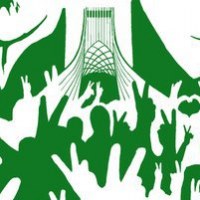![]()
Tue, May 10, 2011 | Tabletmag.com | By Willem Marx

Sunni Muslim rebel leader Abdolmalek Rigi under armed guard following his arrest in Iran. (Photograph: Reuters Tv/Reuters)
Resistance in the Middle East: Double Agent
The Arab Spring has cast new light on resistance in the Middle East. A rare 2007 encounter with the leader of Iran’s Jundullah reveals the murky place held by the region’s so-called freedom fighters.
A light gray car idled in the dust of the intersection. Rust ran along its running board, and its windshield was tinted black against the sun. I stepped out of my own SUV, said farewell to my driver, Habib, and interpreter, Hakeem, slung my gear over my shoulder, and clambered inside, where the driver and other passengers, dressed in traditional shalwar kameez with swirling baggy pantaloons, greeted me with handshakes and salaams. I quickly surmised I was not the only one to have gone several days without washing.
We spent that night in 2007 in a local safe house, where I was asked to dismantle my phones and camera for a security inspection before bedding down on the carpeted floor. Early the following morning I was driven along the course of a dry riverbed. On the outskirts of the ramshackle city of Turbat we approached a bridge, one of Pakistan’s last military checkpoints before the Iranian border. With my bearded foreigner’s face hidden by the darkened glass, we were waved through. I started to believe that my rendezvous with Iran’s most wanted terrorist was actually going to happen.
My escorts in the gray car were members of Jundullah (Arabic for the “Soldiers of God”), a Sunni militant organization that had for several years been waging a violent but under-reported insurrection against Iran’s military and government in the country’s southeastern province of Sistan-va-Balochestan. Their attacks had highlighted the fragility of the Islamic Republic’s hold over the non-Persian minority groups — including Azeris, Kurds, Arabs, Baluchs and Turkmen — that make up nearly half of the country’s population. The group’s website has most recently claimed responsibility for a devastating December 2010 attack in the port city of Chabahar, which left nearly 40 people dead and more than 80 injured. News photos from the site showed body parts and pools of blood in front of a local mosque, after a suicide bomber blew himself up during a religious procession.
The landscape we careened through was stark, hot, empty; a boulder-strewn valley lined on both sides with craggy ridgelines of dark mauve rock. Balochistan, a region the size of Montana and Wyoming combined, includes parts of Iran, Pakistan, and Afghanistan and experiences some of the highest temperatures in the world. The borders here would be described as “porous” by Washington think-tanks, and from what I had already seen the towns were awash with opiates, semi-automatic weapons, long-standing tribal rivalries, and oil smuggling. Days earlier I had filmed a Pakistani border guard smoking crack cocaine, and hours later I was nearly arrested after watching local police demand a bribe from truckers smuggling drums of Iranian crude along a lonely asphalt road.
As far back as back in the spring of 2007, Jundullah had cemented its reputation as a violent militant group after staging several large-scale attacks against Iran’s Revolutionary Guard. Just three months before I arrived in the region, Jundullah had launched a bomb attack on a military transport vehicle in the eastern Iranian border city of Zahedan that tore 11 Revolutionary Guards to shreds, provoked newspaper headlines globally, and led to condemnation from the United Nations secretary general. The group’s young leader, Abdulmalik Rigi, had appeared in several audio recordings posted online railing against the Shia Islamic Republic for its mistreatment of Iran’s Baloch minority, who are predominantly Sunni.
Still, Rigi and his comrades had never before spoken to a journalist in the flesh, let alone appeared in front of a television camera, and consequently the group was often described by both Iranian and American media as “shadowy.” Rigi’s decision to grant me an interview was prompted by an ABC News story broadcast in April 2007. The Secret War Against Iran was the lead item on the network’s evening news and reported that Jundullah was being “secretly encouraged and advised by American officials.” “Tribal members” from Balochistan apparently formed the basis for the report, but when I had contacted the news consultant behind the story he said he had not actually traveled anywhere near Balochistan. (The man who provided the information for the ABC News report, Alexis Debat, was later discredited after writing up imaginary interviews with Kofi Annan, Hillary Clinton, and Michael Bloomberg, among others. Iranian state broadcasters and websites still regularly cite the 2007 ABC News report amid accusations that Jundullah continues to receive support from foreign intelligence agencies.)
En route to Pakistan I had arranged to meet some Iranian Baloch based in the United Arab Emirates, a short hop across the Arabian Gulf from Iran’s Sistan-va-Baluchestan province. I suspected some of them might have ties to Rigi, who was variously described by the Iranian authorities as an al-Qaida lieutenant or a powerful narcotics trafficker. The men I met in the emirate of Sharjah were angry about the ABC report, released just days before our encounter. “He needs no money from the CIA, he makes plenty from smuggling and kidnap ransom,” explained one elderly bearded man over a lunch of fried chicken and naan. He called himself Jumma Khan and claimed to have commanded a previous Baloch insurgent group during the Iran-Iraq conflict of the 1980s, with weapons and cash provided by his benefactor Saddam Hussein. (It was Jumma Khan who eventually brokered my interview with Rigi.)
I recalled this conversation on my drive with the four young men from Jundullah, which, after two jarring hours, led us to a small cluster of mud-brick homes that I reckoned to be around 25 miles from the Iran border. Minutes later a pickup truck roared into the compound where we sat waiting. Crouched in the back were half a dozen more Jundullah fighters sporting AK-47s and RPGs. The driver dismounted from the cab and approached me, smiling broadly. I recognized him from the grainy photos I had seen online; it was Rigi.
Willem Marx is a freelance writer and TV reporter based in London. His work has appeared in the Los Angeles Times and Harper’s.



 RSS
RSS

















Resistance in the Middle East: Double Agent | #Iran #Jundallah #freedom #CIA http://j.mp/jUP4lu
Resistance in the Middle East: Double Agent | #Iran #Jundallah #freedom #CIA http://j.mp/jUP4lu